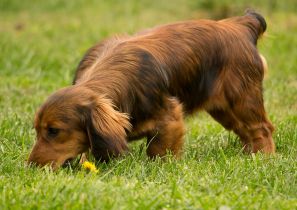Why do our dogs forage?
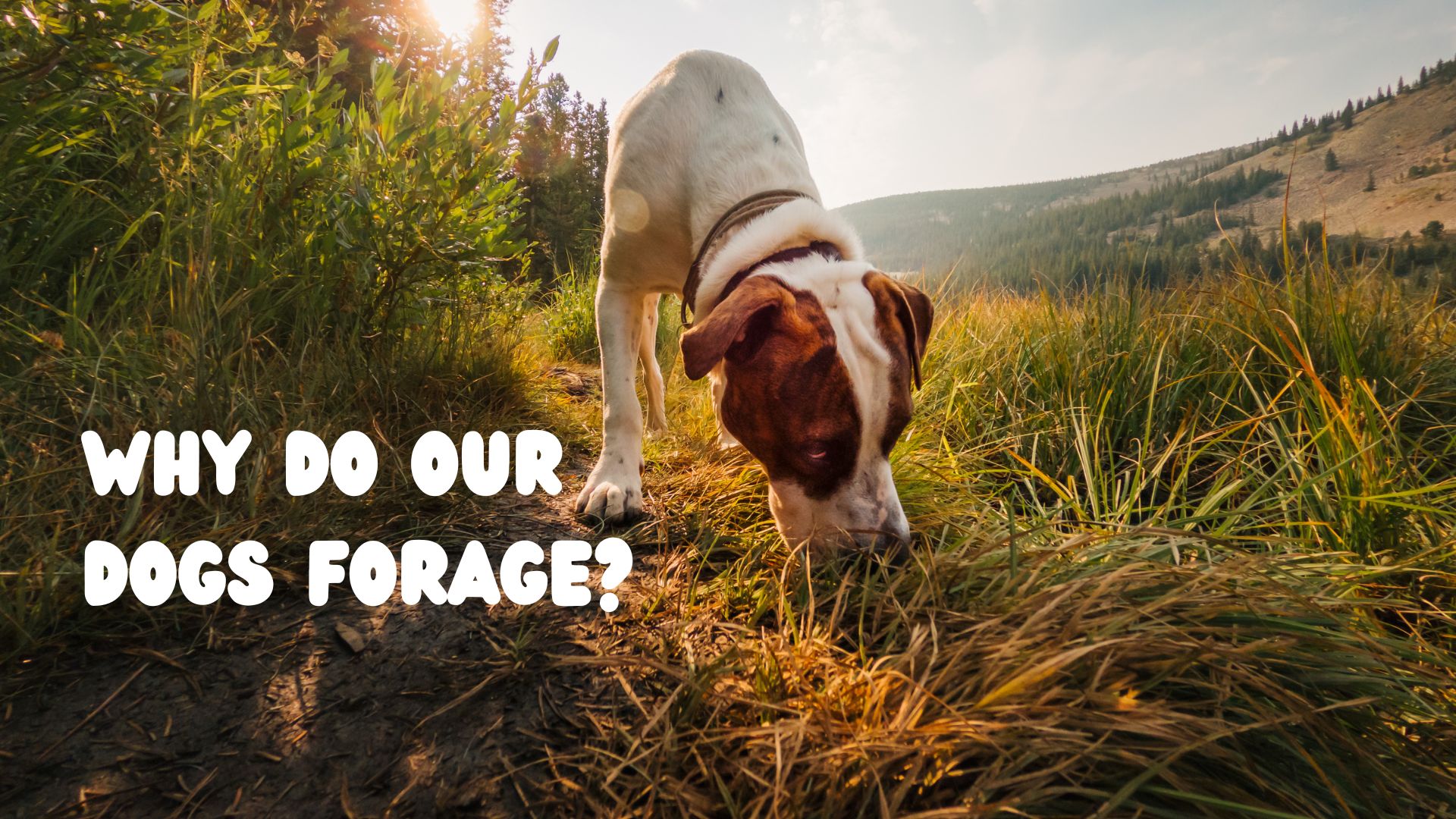
Scavenging is considered an undesirable behaviour, often for fear the dog will eat something that’s dangerous for them or will make them ill.
Excessive scavenging can also lead to dogs becoming unresponsive to their owners and roaming too far if off lead, in their quest for finding food.
As a species, dogs are scavengers first and foremost. Studies on free ranging dogs have less frequently recorded observations of them predating on animals, although they may predate when prey are in abundance and when perhaps resources are hard to find through scavenging.
Dogs have been observed scavenging for scraps of food from humans, dead animals and human and animal faeces. They will also eat mud/soil, grass and berries from trees/bushes.
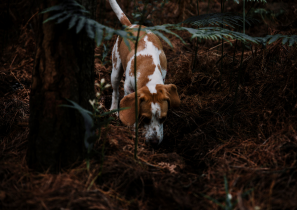
It is thought that eating soil and faeces may supplement or boost the gut microbiome, which is crucial for health. I personally let my dogs eat herbivore poo, and in doing so over the years I have observed that all of them are quite particular about what poo they eat when given the freedom to choose. They can walk through a field full of sheep poo and ignore it all, then all beeline as a group to one specific poo 20 metres off the path.
That’s not being greedy, that’s being picky!
Or – if you rather your dog avoid eating herbivore poo, take a look at Leo & Wolf Mineral Moor Mud, which contains natural humic acids to support gut microbiome and digestive health.
Whilst dogs have developed the ability to somewhat digest starch due to scavenging grains and rice from human dwellings across thousands of year, observations on free ranging dogs found they show a distinct preference for meat-based foods (less commonly, fish). The issue being with scavenging around human settlements, is that meat is generally less available to eat! Hence evolved to digest starch out of necessity.
Stopping Scavenging
Sometimes muzzles are utilised to prevent scavenging, however, this may be similar to putting a plaster on an infected wound and hoping it will heal. Muzzles stop dogs eating things that can cause them harm, but they do not address why a dog may be scavenging in the first place.
Asking how to stop a behaviour is rarely the solution to any problem. Asking ourselves what motivates a behaviour and how we can address that motivation is usually more of an effective response.
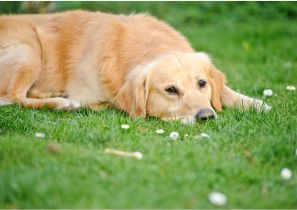
Coprophagia
This involves eating dog faeces. Aside from mothers/aunties cleaning up after puppies, this is generally considered to be a sign that something is not right with the dog’s health. It can be a sign that their food is not meeting their nutritional needs (so they are seeking a second round of nutrition). It may also be because the microbiome of the dog whose faeces they are eating is of benefit to them.
In some instances, it can become a learned behaviour, starting from being kept in unclean environments, due to excessive hunger or exploration as a young dog.
Eating Inedible Items
This behaviour is called Pica and is commonly linked to gastro intestinal issues, where the dog is seeking items to ingest in an attempt to relieve discomfort. In some instances, it may be learned from well-meaning owners being too quick to remove items off puppies who were exploring. So, the puppy learned to grab and run with the item and gobble it up quickly as a way of keeping it.
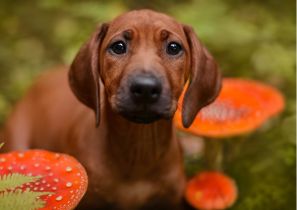
Intensive Food Scavenging
This can be due to learning history. For instance, a dog encounters a pile of chips on the pavement on their local walking route and pulls to check out the same spot for the weeks that follow. Or we see dogs who know where all the cat poo is on their walking route based on their previous finds, or they run to where they once found a delicious rotten carcass by chance. For some rescue dogs, their behaviour may be learned from living as a stray or free ranging dog.
If a dog is intensely scavenging without the learning history (success) then I encourage owners to review diet. Can we blame some dogs for seeking variation if they are dissatisfied on nothing but a dry food diet?
Remembering that multiple research studies have shown dogs will choose diets higher in fats and protein than carbohydrate, if we predominantly feed a dry, processed, carbohydrate diet- then we do run the risk of dogs seeking variation.
I see a lot of success in reducing scavenging behaviour by adding variation to the diet. If the dog has no medical issues or reasons to be cautious, transferring them onto a higher protein and fat-based diet- like Nutriment raw food- can have a big impact on their behaviour in addition to recall training.
Reinforce recall training with super high value treats, such as our dried Leo and Wolf oven baked liver treats.
Outlets for Scavenging
Helping our dogs full fill their species-specific behaviour of scavenging may help improve their welfare. We can do this by scattering treats at home in the garden, or by using snuffle mats and snuffle boxes.
When training, we can sprinkle treats on the floor for dogs to snuffle up as their reward, or place single treats on the ground from time to time.
You can also hide larger, less numerous items around the home or garden for you dog to sniff out and consume. For example, instead of giving their chew straight to their mouth, you could hide it for them to find. Just be mindful to make the initial searches easy, so they build confidence up in doing the behaviour.
